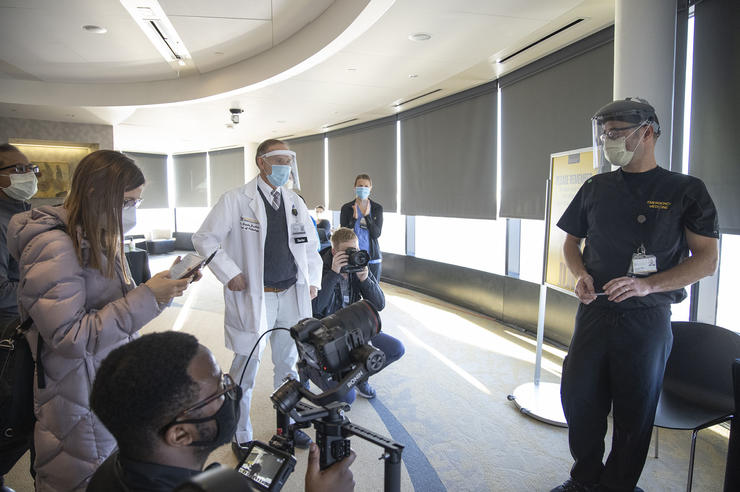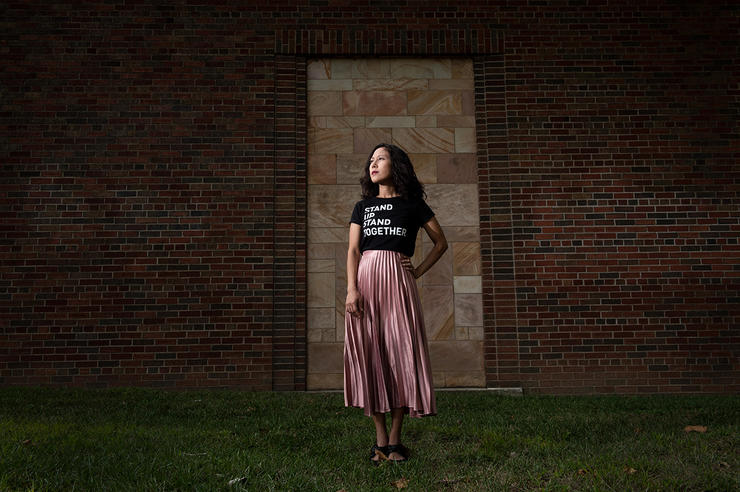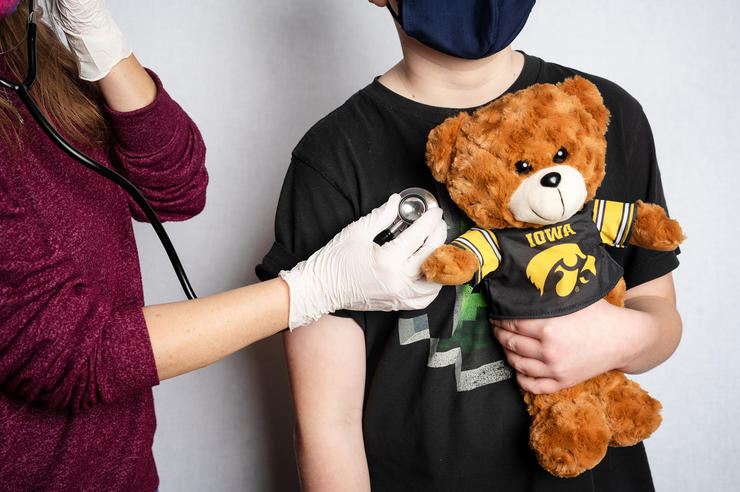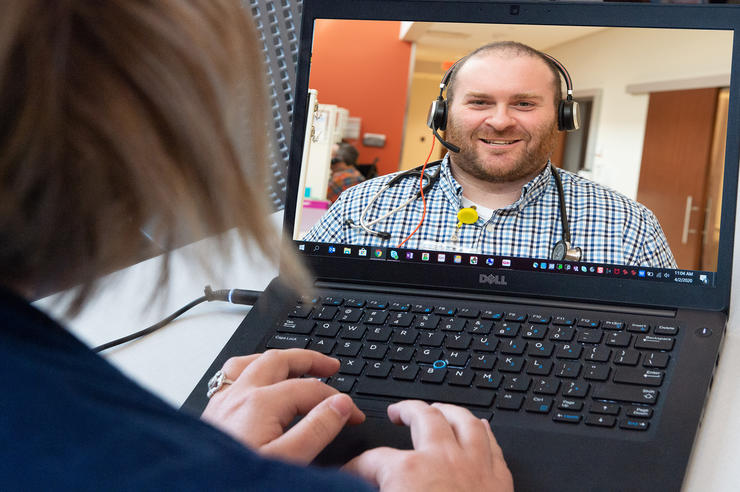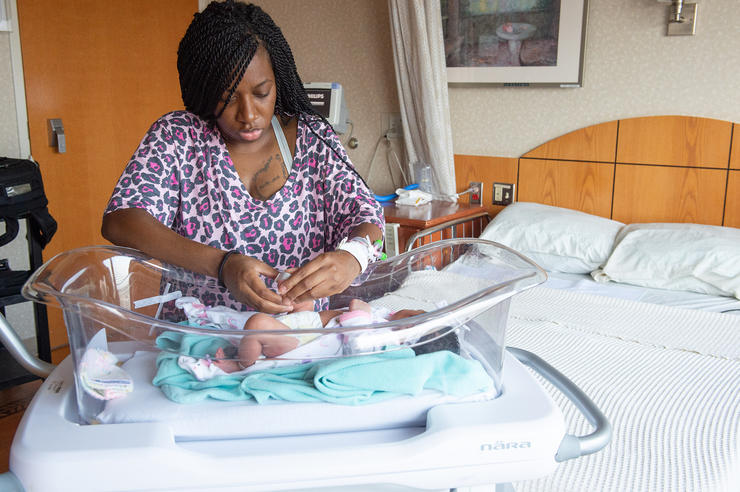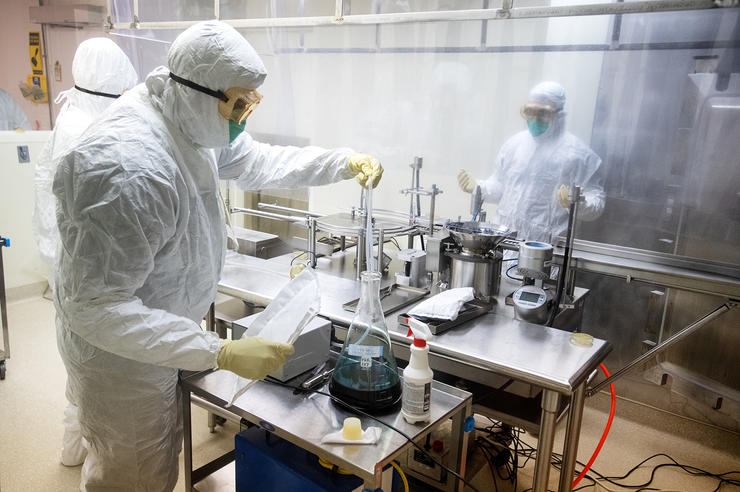Spanish-speaking team provides comfort, compassion
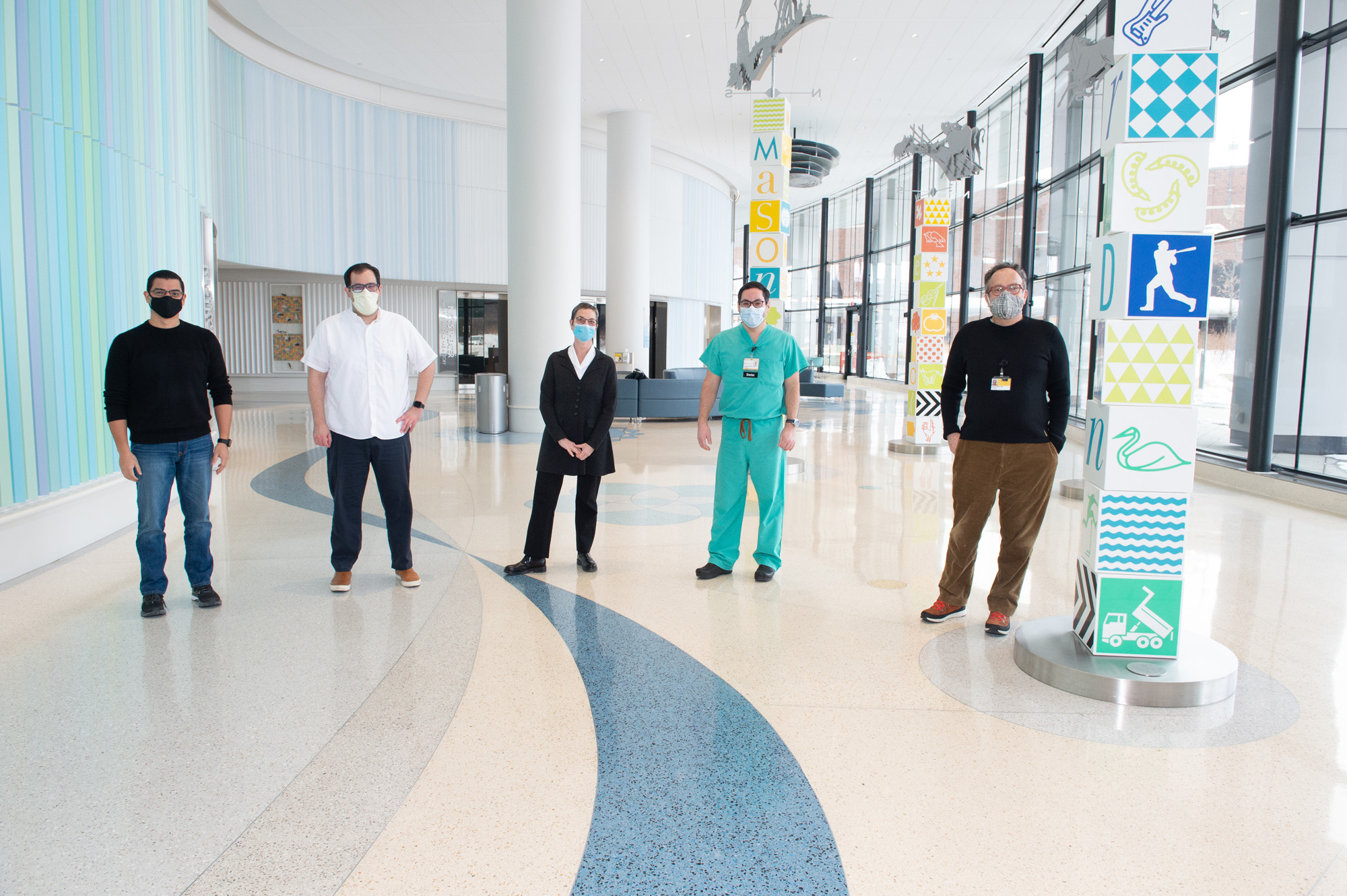
Imagine being critically ill in the Medical Intensive Care Unit (MICU), attached to tubes and wires. Now imagine, on top of that, not being able to communicate with others due to language barriers.
“Last April, we noticed that 90% of our ICU patients with COVID-19 were Hispanic, the majority of whom were only Spanish speaking,” says Rolando Sanchez, MD, University of Iowa clinical associate professor for the Department of Pulmonary and Critical Care Medicine.
Sanchez says many of these patients were immigrants working at midwestern food processing plants.
“Most of them were part of a vulnerable population with poor health care access, economic inequality, and housing segregation,” Sanchez says. “They had to work every day for minimum wage so they could eat and support their families.”
Latinx people are disproportionately affected and admitted to UI Hospitals & Clinics with serious cases of COVID, wrote Nicole Nisly, MD, in her nomination letter for the Culturally Responsive Health Care Award.
“During this very difficult time, Joseph Zabner, MD, UI division director of the pulmonary and critical care division, created a dedicated team made up of Spanish-speaking intensivists to effectively communicate with these patients and their families,” says Nisly.
This program—which comforted patients and connected them with their families and providers—was awarded this year’s Culturally Responsive Health Care Award. Zabner; Sanchez; Alejandro Comellas, MD; Alejandro Pezzulo, MD; Raul Villacreses, MD; Claudia Corwin, MD; and Tahuanty Peña, MD, created a “place of equality, where patients had optimal access,” according to Nisly.
Answering the call
After Zabner sent out an urgent call for Spanish–speaking providers, Sanchez and his teammates began making daily visits to the MICU. Sanchez was grateful he could bridge the communication barriers, help lighten the load for MICU providers, and provide relief and comfort to patients by answering questions and contacting their families.
“We decided to use a videocall platform to speak with families,” he recalls. “Being able to share emotions and see facial expressions made those conversations easier to connect with them. The patient’s families were reassured that their loved ones were cared for by an excellent health care team, and they were encouraged to call the ICU directly if they had further questions. We made sure they knew their loved were cared for like our own family.”
Explaining complex medical terms is difficult in any language. Sanchez says his team created a common script consisting of introducing themselves, providing detailed information about each’s patient clinical status, and explaining the hospital visitor restriction policies. They were able to have difficult conversations regarding patient’s prognoses, therapeutics, and the implications of procedure or labs.
“The complexity of the conversations was difficult,” he says. “The calls were pretty tough for all of us.”
“I’ve seen a couple of those patients. They are grateful to have access to people communicating with them in Spanish. Going forward, we need to recognize these barriers to prevent health care disparities.”
Sometimes the people on the other side of the call were infected with COVID-19 as well, he says.
“They were isolated in small rooms, overwhelmed by sadness, fear, and uncertainty,” says Sanchez. “They were afraid of dying, losing their love ones, dealing with mounting health care bills due to lack of health insurance, and loss of income from the inability to work in their minimum wage jobs without paid leave.“
Looking back, Sanchez recalls how heartbreaking it was for his group.
“I realized during that time that I wasn’t prepared to witness such a degree of suffering,” Sanchez says.
COVID as a microcosm of society
Sanchez says the COVID-19 pandemic has brought to the forefront the long-standing problem of health care disparities in the U.S. by disproportionally affecting Hispanics and Blacks. It has also exposed some of the social challenges immigrant workers face.
“Our Spanish-speaking patients told us they were afraid of losing their jobs,” he says. “If they had a fever, they would take Tylenol to pass the temperature screening at work. They were so hypoxic on admission; I’m surprised many didn’t lose consciousness before they came to the hospital.”
Before the pandemic, Sanchez says he didn’t know much about the working conditions of this patient population and learned a great deal. For those who survived COVID-19, the community follow-up clinic has been a blessing.
“I’ve seen a couple of those patients,” he says. “They are grateful to have access to people communicating with them in Spanish. Going forward, we need to recognize these barriers to prevent health care disparities.”
A community of generosity
Sanchez says it’s wonderful for his group to be nominated for such a meaningful award. However, he is humble and says many others deserve recognition. During the pandemic, he says helping others has taken a whole army of people working together.
“Housekeeping never stopped working when we needed them the most,” he says. “Food workers prepared meals for everyone, allowing us to keep working. And I’m thankful for all those people in the community who donated food to the health care workers.”
Sanchez says University of Iowa Hospitals & Clinics is an institution that truly provides outstanding care for all its patients. He credits division director Zabner for their success in providing compassionate care.
“Great leaders have the capacity to translate a vision into reality, and that’s what he did,” says Sanchez. “Despite all the tragedies, one of the beautiful things this pandemic has shown us is the strength of our outstanding institutional leadership.”
